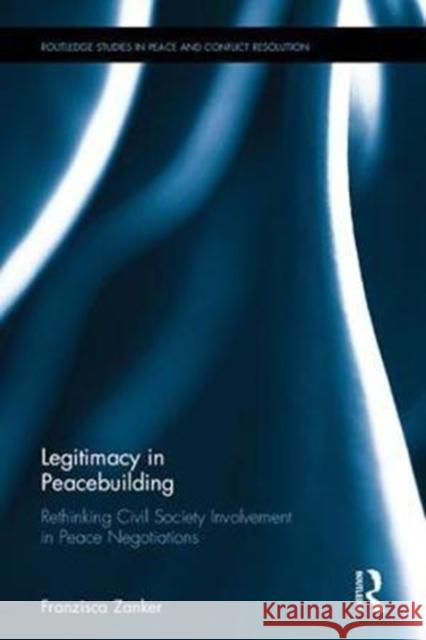Legitimacy in Peacebuilding: Rethinking Civil Society Involvement in Peace Negotiations » książka
Legitimacy in Peacebuilding: Rethinking Civil Society Involvement in Peace Negotiations
ISBN-13: 9781138685376 / Angielski / Twarda / 2017 / 224 str.
The book offers a critical analysis of legitimacy in peacebuilding, with a focus on peace negotiations and civil society participation in particular. The aim of this book is to unpack the meaning of legitimacy for the population in peacebuilding processes and the relationship this has with civil society involvement. There is a growing consensus for addressing local concerns in peacebuilding, with the aim of ensuring local ownership. Moreover, scholars have noted a relationship between civil society inclusion in peace negotiations and legitimacy. Yet, the very idea of legitimacy remains a black box. Using data from original empirical fieldwork - including over 100 semi-structured interviews and 12 focus group discussions - the book focuses on two case studies of negotiations that, respectively, ended a long civil war in Liberia in 2003 and ended the post-election violence in Kenya in 2008. It argues that civil society involvement is conceptually insufficient to show a multidimensional understanding of legitimacy. Instead, the book shows a complex picture of legitimate peace negotiations, based on outcome and participation-based characteristics with the involvement of both 'guarantors' of legitimacy and a more general civic agency which includes the general population. Through forms of participative communication, the passive audience become active stakeholders in the construction of legitimacy. This has repercussions for how we think about civil society and peacebuilding more generally. This book will be of much interest to students of peacebuilding, conflict resolution, security studies and IR in general.











